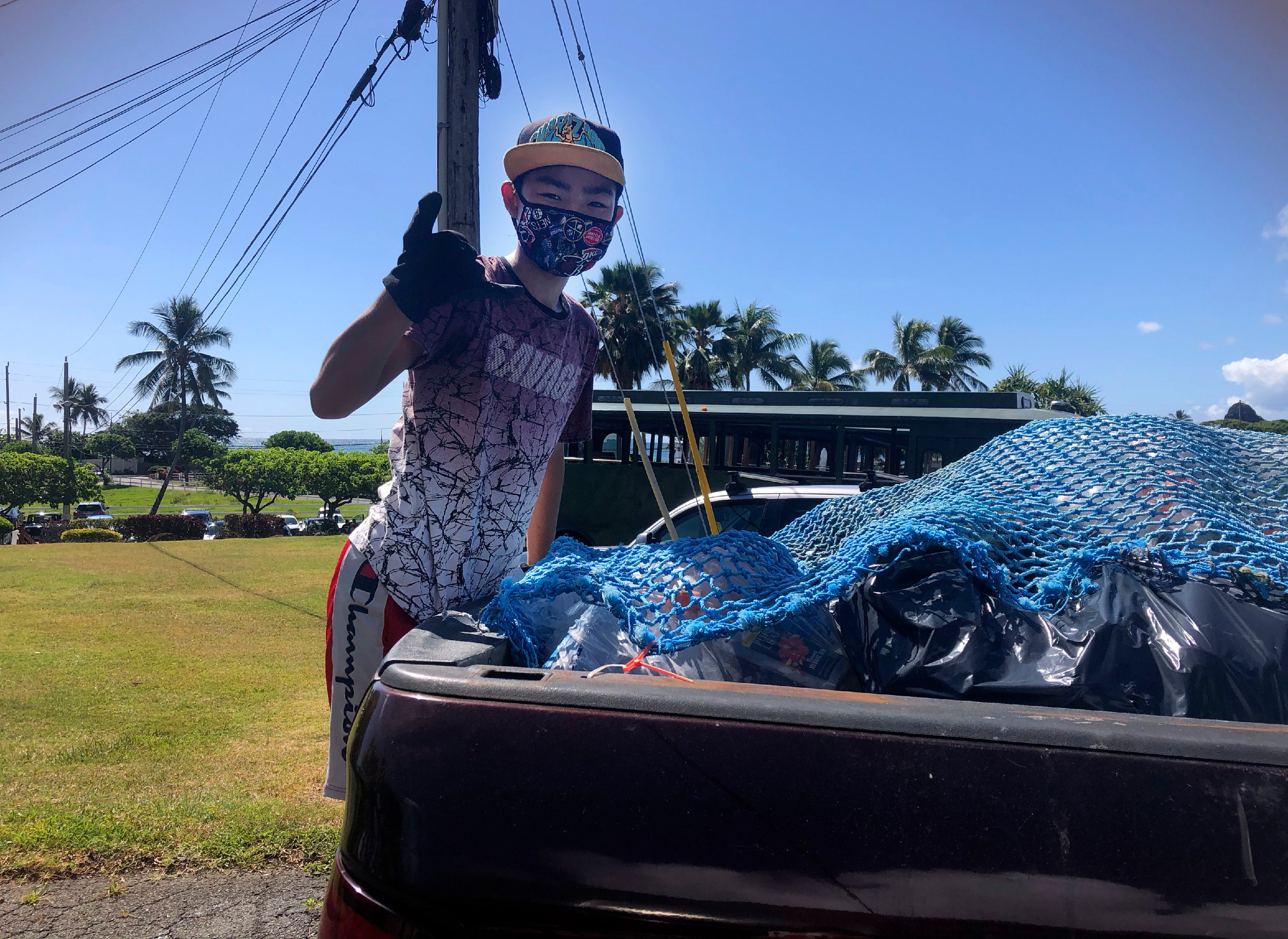Hawaii teenager recycles to help students reach college
Genshu Price began to recycle bottles after his father encouraged him to help save money for his college tuition

Your support helps us to tell the story
From reproductive rights to climate change to Big Tech, The Independent is on the ground when the story is developing. Whether it's investigating the financials of Elon Musk's pro-Trump PAC or producing our latest documentary, 'The A Word', which shines a light on the American women fighting for reproductive rights, we know how important it is to parse out the facts from the messaging.
At such a critical moment in US history, we need reporters on the ground. Your donation allows us to keep sending journalists to speak to both sides of the story.
The Independent is trusted by Americans across the entire political spectrum. And unlike many other quality news outlets, we choose not to lock Americans out of our reporting and analysis with paywalls. We believe quality journalism should be available to everyone, paid for by those who can afford it.
Your support makes all the difference.In the beginning, Genshu Price recycled for his own sake — his father said it would be a good way to save money for his college tuition.
But then, he came up with grander idea: Why not recycle thousands of bottles and cans to help other students in Hawaii reach their college dream.
“That way, it would be able to help a lot more local families, help a lot more people throughout the generations,” Price said.
The 13-year-old from Oahu launched Bottles4College three years ago. The goal is to collect and recycle 2 to 4 million cans and bottles annually to fund college tuition for up to two students. Price said his project “gained traction” during the coronavirus pandemic.
“People saw this as a way to give an opportunity back to local families, especially since the pandemic has hit everyone so hard, especially the kids,” he said. At the same time, they would protect the environment and keep their island clean.
His mother, Maria Price, recalled how he began going around to beaches, Little League baseball games and parks, “just asking people if they’re done with their drinks,” to collect their bottles and cans, which he sorted with his parents' help.
Since then, he has collected more than 100,000 bottles and cans and has received support from businesses and schools, setting up drop-off depots at places like Mililani Uka Elementary School, the Kualoa Ranch nature reserve and S.W. King Intermediate School, which he attends.
“Hawaii already has very high living costs. COVID made that even harder,” he said. “I want to give a way for students who may not ... have been able to go to college by themselves.”
Bottles4College, he said, is based on four pillars: education, environment, community and lifestyle. “We’re helping the environment by recycling,” he said. “We’re helping education by providing scholarship funds for Hawaii kids and inspiring them to want to get a good education. And then you're bringing communities together.”
It’s a lifestyle, he said, because the other pillars become a part of your life.
The soon-to-be eighth grader is also an aspiring filmmaker; he created a documentary highlighting his work. He also posts videos on YouTube including tips on how to sort cans and bottles and encouraging others to recycle.
“We still have a little bit to go to get to the place where we want to be, but it’s definitely exciting. Every can counts, it’s one can or bottle at a time,” he said.
Caring about others, he said, is even more important during challenging times.
“In school they teach you how to treat other people how you want to be treated,” he said. “And especially at a time like during the pandemic, that phrase really comes into play.”
___
“One Good Thing” is a series that highlights individuals whose actions provide glimmers of joy in hard times — stories of people who find a way to make a difference, no matter how small. Read the collection of stories at https://apnews.com/hub/one-good-thing
___
Associated Press religion coverage receives support from the Lilly Endowment through The Conversation U.S. The AP is solely responsible for this content.